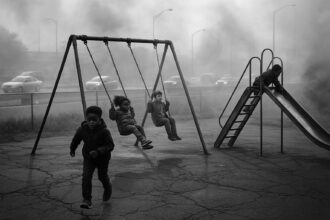Grant Shapps was forced to reroute to Kyiv instead of Odesa due to heightened missile threats from Russia, amidst a backdrop of escalating tensions and conflict between Ukraine and Russia.
In a series of unfolding events highlighting the persistent tensions and escalating conflict between Ukraine and Russia, the UK Defence Secretary Grant Shapps was forced to abort a planned visit to Odesa amidst heightened missile threats from Russia. The decision came after British intelligence received information that Russian President Vladimir Putin had prior knowledge of Shapps’ itinerary, coupled with a recent Russian missile strike close to Ukrainian President Volodymyr Zelensky and Greek Prime Minister Kyriakos Mitsotakis during their visit to the city. Instead, Shapps redirected to Kyiv for discussions with Ukrainian officials, underlining the precarious situation faced by Western leaders in the conflict zone.
This series of incidents underscores the aggressive stance Russia continues to exhibit towards Ukraine, including a cyberattack on Putin’s United Russia party during presidential elections, with Russia attributing the act to Ukrainian interference. Controversially, Russian soldiers were also reported to coerce civilians in occupied Ukrainian territories during the electoral process, magnifying concerns over the integrity of the elections and exacerbating tensions between the two nations. Clashes in the region have seen casualties on both sides, contributing to the complexity of the ongoing conflict.
The broader geopolitical context sees a stalemate in the Ukraine conflict, with neither side achieving decisive action. The war’s continuation and heightened rhetoric, including nuclear threats from Putin, underscore the severe implications of the conflict not only for Ukraine but also internationally. Calls within the UK for increased military spending in response to Russia’s significant defence budget augmentation reflect the escalating situation and the perceived need to counteract Russian military capabilities.
The complexity of the situation is further evidenced by Pope Francis’s suggestion of a negotiated peace, which met resistance in Kyiv, indicating the challenges in finding a peaceful resolution. Simon Tisdall, the Observer’s foreign affairs commentator, highlighted the necessity of a Russian defeat to preclude further escalation and suggested that peace can only truly be achieved with the removal of Putin from power, emphasizing the high stakes involved.
Amid this backdrop, the ongoing attacks on Odesa and the explicit targeting of key Ukrainian figures and cities by Russian forces amplify the urgent humanitarian concerns and the escalating danger posed by the conflict. The international community faces mounting pressure to intervene and address the humanitarian crisis, as the war continues to draw in external interests and exacerbate regional instability.













